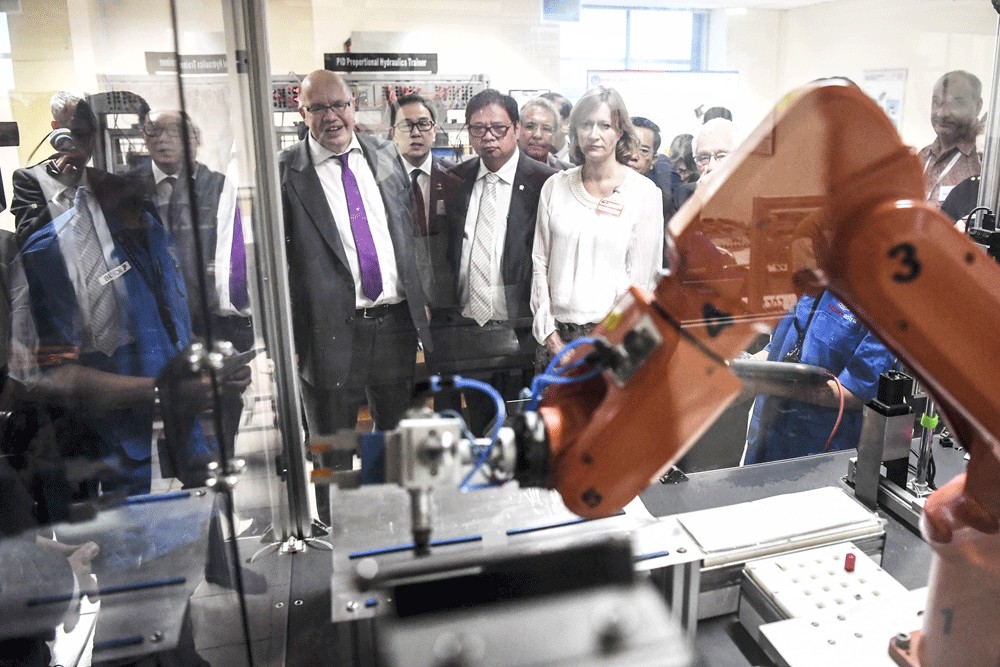Popular Reads
Top Results
Can't find what you're looking for?
View all search resultsPopular Reads
Top Results
Can't find what you're looking for?
View all search resultsManufacturing industry grows slower in October
Change text size
Gift Premium Articles
to Anyone
 Industry Minister Airlangga Hartarto (third left), Germany’s Federal Minister for Economic Affairs and Energy Peter Altmaier (left) and diversified business group PT Astra International president director Prijono Sugiarto (second left) watch as students from Astra’s School of Manufacturing Technology operate an industrial robotics machine during their visit to the campus in Jakarta recently. (Antara/Hafidz Mubarak)
Industry Minister Airlangga Hartarto (third left), Germany’s Federal Minister for Economic Affairs and Energy Peter Altmaier (left) and diversified business group PT Astra International president director Prijono Sugiarto (second left) watch as students from Astra’s School of Manufacturing Technology operate an industrial robotics machine during their visit to the campus in Jakarta recently. (Antara/Hafidz Mubarak)
T
he manufacturing industry grew slower in October, indicated by the decline of Nikkei and IHS Markit’s purchasing managers' index (PMI), which stood at 50.5, lower than the previous month’s index of 50.7.
A country with a PMI of 50 indicates lack of expansion in the manufacturing industry.
While the index declined, Indonesia’s position was still better than peer countries such as Malaysia (49.2), Thailand (48.9), Myanmar (48.0 and Singapore (43.3).
According to Nikkei, the slower expansion was caused by purchase and export declines in October.
“The manufacturing sector lost momentum since the beginning of the fourth quarter, indicating the condition of slower demand,” said IHS Markit economist Bernard Aw in a Nikkei report as quoted by kontan.co.id on Tuesday.
He added that the slowing demand, however, had not affected production volume as in October, Nikkei still recorded moderate expansion in Indonesian manufacturers’ output.
Factories in the country consistently increased activities, including in purchasing raw materials, and therefore still contributed to the increase of stocks.
However, the weakening of the rupiah had caused increases in raw material prices that triggered inflation on the input prices, the fastest in the last three years. Nikkei projected that companies would increase input cost, the fastest since 2015.
Nikkei has projected positive business sentiment next year following production increase, higher prices and planned capacity expansion. (bbn)









